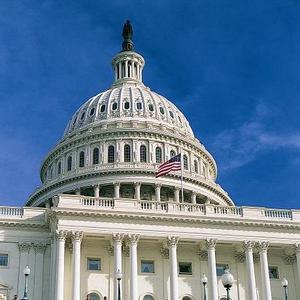Bill intro'd in Senate to reform, extend tax credit through 2019

July 13, 2016
BY Ron Kotrba
A bill was introduced in the U.S. Senate to extend the $1-per-gallon biodiesel tax credit through 2019 and restructure the incentive from a blenders credit to a domestic production credit. The legislation was introduced by Sens. Chuck Grassley, R-Iowa, and Maria Cantwell, D-Washington, and features 12 additional cosponsors. The bill mirrors House legislation (H.R. 5240) introduced by Reps. Kristi Noem, R-South Dakota, and Bill Pascrell, D-New Jersey.
Anne Steckel, vice president of federal affairs for the National Biodiesel Board, urged Congress to take up the bill and pass it as quickly as possible. “Biodiesel and renewable diesel producers around the country are yet again facing what effectively amounts to a tax increase in less than six months,” Steckel said, referring to the pending expiration of the tax credit at the end of this year.
The biodiesel tax credit has lapsed four times since 2010.
“Congress can keep that from happening by passing this bill,” Steckel said. “It will give producers the certainty they need to hire and grow in the coming years. It will continue our success in diversifying the diesel market and reducing our dependence on petroleum. And it will help clean the air by cutting carbon emissions and other pollution.”
Advertisement
Advertisement
Since its inception more than a decade ago, the biodiesel tax incentive has been a blenders credit. Under this structure, foreign biodiesel imported to the U.S. and blended with petroleum diesel in the U.S. is eligible for the tax incentive. In 2015, approximately 670 million gallons of biodiesel and renewable diesel was imported to the U.S., making up nearly a third of the U.S. market.
“[This legislation] also will appropriately reform this incentive by applying it only to domestic biodiesel production, ending a growing practice where foreign producers are taking advantage of our tax system,” Steckel said. “Our tax law should not be incentivizing foreign fuel, and this bill fixes that loophole so that we’re stimulating jobs and economic development here at home.”
Advertisement
Advertisement
Related Stories
The U.S. EPA on July 8 hosted virtual public hearing to gather input on the agency’s recently released proposed rule to set 2026 and 2027 RFS RVOs. Members of the biofuel industry were among those to offer testimony during the event.
The USDA’s Risk Management Agency is implementing multiple changes to the Camelina pilot insurance program for the 2026 and succeeding crop years. The changes will expand coverage options and provide greater flexibility for producers.
President Trump on July 4 signed the “One Big Beautiful Bill Act.” The legislation extends and updates the 45Z credit and revives a tax credit benefiting small biodiesel producers but repeals several other bioenergy-related tax incentives.
CARB on June 27 announced amendments to the state’s LCFS regulations will take effect beginning on July 1. The amended regulations were approved by the agency in November 2024, but implementation was delayed due to regulatory clarity issues.
SAF Magazine and the Commercial Aviation Alternative Fuels Initiative announced the preliminary agenda for the North American SAF Conference and Expo, being held Sept. 22-24 at the Minneapolis Convention Center in Minneapolis, Minnesota.
Upcoming Events










